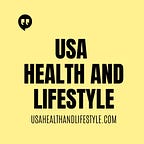8 Drinks Or Beverages To Avoid During Pregnancy — Usa Health And Lifestyle
We give you the most comprehensive guide on beverages you need to have and the ones you need to avoid during pregnancy
Most pregnant women are aware of diet dos and don’ts during pregnancy. However, when it comes to beverages or drinks, they do not have much knowledge. Some of them which are considered actually ‘healthy’ otherwise may actually have an adverse effect during pregnancy.
Think before you drink
Some of the drinks mentioned below are termed as health drinks, some boast medicinal and other equivalent qualities, but they are not all that great for an expectant mum. Beware of these healthy but pregnancy-unfriendly drinks:
8 Drinks Or Beverages To Avoid During Pregnancy
Green Tea: Herbal teas are usually considered safe and are known to be loaded with antioxidants. Green tea is herbal and good for health but refrain from having it during pregnancy. There isn’t enough documentation available to show that green tea is good for pregnant women. During pregnancy your metabolism levels are high as such, green tea increases it further and this is not advisable, says Deepshikha Agarwal, a Mumbai based dietitian and sports nutritionist. Green tea also have some caffeine in it so unlimited sips is going to do you as much damage as regular tea. Also excessive consumption of green tea can lead to less absorption of folic acid during pregnancy making you and your baby susceptible to folic acid deficiency diseases.
Alcohol: Occasional indulgences are fine, but if you cross the line know about its perils too. Too much alcohol intake during pregnancy can lead to poor growth and improper brain development in the foetus. It can also lead to abnormal facial features in the baby and mental retardation, informs Deepshikha. Even if you restrict yourself to one drink a day your baby might still be at the risk for having problems with learning, speech, attention span, language, and hyperactivity after birth. Read why you should avoid alcohol during pregnancy.
Soft drinks: They are great thirst quenchers, we all agree. But now its better you go natural and cut out on fizzy drinks. Soft drinks have caffeine in their content and some can also have chemicals called quinine in them, says Deepshikha. So caffeine and chemicals both in one drink can cause double damage if taken in large quantities.
Iced tea: Go slow on this. Though each sip might make you feel refreshed and rejuvenated this drink also has high amounts of caffeine in it.
Coffee: If you cannot do without your daily caffeine fix, limit your intake to just two cups a day. Ideally taking coffee away from your diet completely is the best thing. Excessive caffeine intake during pregnancy especially during the first trimester can lead to miscarriages or other health related issues in the fetus. It is better to exercise moderation here and limit intake, says Agarwal. Here are a few reasons why you should limit your caffeine intake during pregnancy.
Diet Soda: This is not only loaded with caffeine, but lots of artificial sweeteners too. Saccharine, an ingredient used in the artificial sweeteners can cause birth defects in the baby if had in excess quantity. This ingredient can cross over the placenta and reach the fetus and harm the baby. Even otherwise during pregnancy one is advised to stay away from artificial sweeteners for the same reason, says Agarwal.
Wheatgrass juice: This surely is a health drink you thought would never make it to this list. But did you know that the American Cancer Society advises that pregnant women should not consume wheatgrass since the risk of bacterial and mold contamination is high? Wheatgrass often grows in humid and moist conditions and hence has higher amounts of mold and bacteria. High doses of wheatgrass can have purgative effects (leading to diarrhea and vomiting) and this will cause an imbalance of vital nutrients during pregnancy. Some studies also suggest that wheatgrass intake during pregnancy can result in a miscarriage or cause impairment of a body part in the baby, says Deepshikha. Here are other eight things in the environment that could harm your unborn baby.
Unpasteurized juices or milk: Make sure you read labels before picking up them. Avoid any juice or dairy product that says unpasteurized on the label. Because these products can contain bacteria in them which can lead to food-borne disease in the mother. If it crosses over the placenta and reaches the fetus it can hamper neurological development, says Deepshikha.
